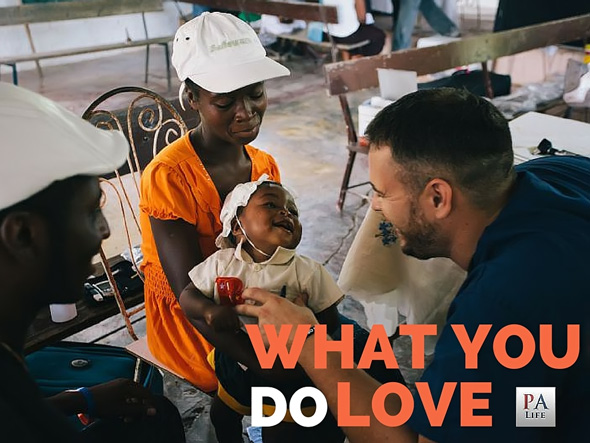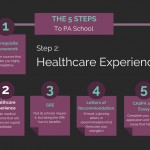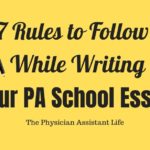Read on: But you may also be interested in my newest post Healthcare Experience Required for PA School: The Ultimate Guide
I could probably summarize this entire blog post with the following sentence:
"THE MORE HANDS-ON PATIENT CARE EXPERIENCE YOU HAVE, THE STRONGER YOU WILL BE AS A PA SCHOOL CANDIDATE."
How many healthcare experience hours do you need to make yourself a competitive PA school candidate?
Although this is a topic of some debate, the consensus from both past and present data suggests at least two years, or 2,000 hours of direct hands-on patient care experience, is a good number to aim for.
I received this email yesterday from a pa school applicant Deeba. It is a good question and one I receive in my inbox almost daily.
Subject Line of Email: Finding Direct Patient Care Requirements
I am currently a sophomore in college and want to go to PA school. I see that the requirement for most schools is about 1,000 hours of direct patient care.
How can I get direct patient care experience?
Everything I see requires a certificate which means more classes and more money. Can you give me some examples of direct patient care jobs that I can do that don’t require a certificate?
I keep stressing that I won’t find any place/job to get direct patient care experience if I am not a certified, nurse? Is this true, please let me know my options?
Thank you,
– Deeba
Here is my Answer: How to Find The Direct Patient Care Experience
You have many options.
It can be as simple as volunteering in your local community hospital, in a retirement center, working overseas, at a blood center, a children’s center, The Special Olympics or a special needs summer camps, etc. etc. Most hospitals need volunteers and have a department dedicated to this. It is a perfect place to start.
That’s exactly what I did when I started in patient transport. I merely walked through the front door of the University Hospital, gave my biggest smile and asked the front desk staff where I could find information about volunteer opportunities. They gave me a vest, a badge and I was making my first patient transport the following day.
Later that year, I took a short walk to the student clinic and once again threw a big smile on my face and asked if there were positions for students interested in healthcare. They introduced me to “Jennifer,” a senior pre-med student working in the clinic as an assistant phlebotomist. Jennifer let me shadow her for the day. She introduced me to staff all over the hospital. I can’t tell you how much I respected her and wanted to be like her.
It was because of Jennifer that I landed my first paid position in the clinic as a medical records clerk making $4.25 an hour. My job included filing and retrieving records (it was the pre-digital era), so I got to explore the various specialty clinics and collect and distribute medical records to all the providers in every specialty. I met just about everyone in the clinic, including my first physician assistant.
The following year Jennifer graduated and passed her phlebotomy position on to me. They trained me to do work in the laboratory and perform blood draws (without a certificate). Upon graduation, they provided me with an official certification, and I went on to work for the University Hospital and the Puget Sound Blood Center as a lead technician.
I Volunteered Everywhere I could:
- During my senior year, I spent the summer working at a special needs youth summer camp.
- After graduation, and after I returned home from work, I took evening classes for three months to get my EMT certification.
- I volunteered at a homeless shelter.
- I was applying for a 3-month internship to work in Chicago Catholic Youth Ministries when I was accepted into PA school.
I am not trying to pat myself on the back. What I am trying to do is to show you that to make it anywhere in life, you have to get out and just do it.
Opportunities rarely come knocking at your door, but there are opportunities everywhere. If you are short on opportunities in your area, then go to where the opportunities are. I am on the board of our Physician Assistants For Global Health organization, and there are endless opportunities to work overseas, and you don’t need any patient care experience to get started.
But Stephen, I have kids, family to support, school and a part-time job!
Trust me, as a father of two with an extremely busy schedule I understand.
If you have kids, family, a part-time job, school, a family member to care for, a pet gerbil that requires a lot of time and attention, etc. etc. it simply means you have to dig a bit deeper and get a little more creative. It may mean taking classes at night to get that certification you may need, cutting back on hours at work, teaming up with your partner or friends to get creative with child care, you may have to take a massive leap of faith and quit your current job entirely.
Nobody said it was going to be easy. You just never give up, no matter how hard the challenges are, observe this world with a healthy dose of skepticism and don’t just follow the herd as somebody else might do.
Once you are on target, you will find this isn’t “work” at all; it is a joy to help other people. It will open your mind as well as your heart, and you will become a better person along the way.
Start today:
- Send out a request to your Facebook or Linkedin network
- Search global health opportunities
- Call your local health center
- or homeless shelter
- or children’s hospital
- or veterans association
- or senior living center
You get the point.
Say you are willing to work for free… and do an awesome job, and you will also have the glowing letters of recommendation you need!
And, to top it off, you will feel good about yourself, you will develop the skills you need to love and care for another human being, and this is what matters most if you are to be successful in life and as a PA.
I hope this helps,
Stephen
Here is what Andrew Rodican author of "The Ultimate Guide to Getting Into Physician Assistant School" has to say about this topic:
Unlike young medical school applicants who are not expected/required to have direct patient contact hours, there’s a totally different philosophy with respect to PA school applicants. The PA profession is not an entry-level profession. Remember, the first PAs were former Navy corpsman who had 3 or 4 years of combat medical experience. Competitive applicants will have 2,500 to 3,000 hours of hands-on direct patient contact. Why would you think that you would be a competitive applicant without medical experience?
Unfortunately, some applicants have no medical experience at all, which certainly hurts their chances of getting accepted. Most committee members will insist on some prior medical experience before they will consider the applicant as a serious candidate.
On average, four years of prior experience in one of the following areas is common:
Nursing
- Registered Nurse (RN)
- Licensed Practical Nurse (LPN)
- Certified Nursing Assistant (CNA)
Allied Health
- Physical Therapist
- Occupational Therapist
- X-ray Technician
Emergency Services
- Emergency Medical Technician (EMT)
- Paramedic
- Emergency Room Technician
Miscellaneous
- Phlebotomist
- Athletic Trainer
- Medical Researcher
- Medical Volunteer
Medical Experience Statistics for PA School Applicants
| Worked in health care before applying to PA school | 79% |
| Worked less than one year or not at all in a health care field | 27% |
| Worked more than nine years in a health care field | 10% |
| Worked less than one year or not at all in a health care field with direct patient contact | 35% |
| Previously worked as a medical assistant | 17% |
| Previously worked as an EMT/Paramedic | 9% |
| Worked as a phlebotomist | 9% |
| Worked as an emergency room technician | 8% |
| Worked in medical reception/records | 7% |
| Worked as a nurse | 8% |
| Worked as an athletic trainer | 6% |
| Reported "other" as health care experience | 45% |
Note: Respondents were permitted to indicate multiple health care fields; thus, the sum of all fields exceeds 100%
Applying to PA school is an extremely competitive process. The more points you score with the committee, the better.
Think about your own experience and how you might be able to improve upon it. If you have little or no medical experience, consider doing volunteer work at the local hospital or clinic. The more hands-on medical experience you have, the stronger you will be as a candidate.
Summary:
As much as I love Andrew Redican's book on the topic of getting into PA school, I think he is using an all too common path. I helped a gentleman with his personal statement last year who before applying to PA school had many years of experience, not in the healthcare field mind you, but as a dance instructor.
The key is that he loved people, it was apparent in his essay and evident in our communications back and forth.
Applicants I council tend to get caught up in trying to fill these "quotas" of what they think is necessary to succeed. Often we use the principles of a common denominator... i.e., if I become a CNA, I can make it as a PA.
The truth is that I would much rather take the dance instructor, with the solid GPA, who shows he cares deeply about people and is willing to work his butt off.
What I am trying to say is don't sell yourself short and set the bar in a comfortable place. Look outside yourself for experiences that will help you grow as a compassionate and caring human being. From here the sky's the limit.
Photo credit: Courtney Reese from our trip to Missions Trip to Haiti. You can watch my cheesy (yet hopefully inspiring) video montage Here.
















Hi,
Are all hours created equal?
In others words, is 1,000 hours a 1,000 hours, regardless if you were a trauma nurse, phlebotomist, etc.?
Or does quality matter and some hours are considered “better” than other hours?
Thanks!
Hi Daniel, great question. Yes, some hours are considered better than others but like fruit, this depends on the “tastes” of the PA program. There are times where you will be comparing apples to apples, such as in-patient phlebotomist vs. out-patient vs. something like a phlebotomist for the Red Cross. Then there are times where you will be comparing apples to oranges such as trauma nurse or CNA or Army Medic. I will go out on a limb and say that the more hands-on and patient care oriented the healthcare experience is – the better – always. And as you know certain experiences are more hands-on than others even within the same category. But hands-on is the key here and the gold standard which all PA programs love to see.
Stephen
Hi Stephen,
I recently got admitted to a program called Biomedical Science (new program/degree) and it’s meant for students who want to work in the medical field like physicians, PA, dental, etc, so that’s my plan so far but now I’m lost on what to do next. Do you think medical scribers are good way to go as ‘hands-on patients experience’? I know it doesn’t need a certificate and licensing to be able to work as one. A PA school I am aiming for requires at least 2000 hours of paid HCE/PCE. Also, how long did it take for you to go through the process of getting admitted to PA school, starting after high school? Could you please break down the months/years for each process like the volunteering and all? Thank you!